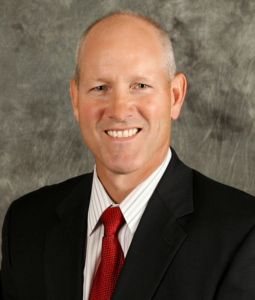At a time when aging baby boomers need a bit of help, more adult children need a place to stay, and housing costs keep climbing, some families are turning to multigenerational homes.
While the COVID-19 pandemic appears to have accelerated such family togetherness nationwide, the use of a house by multiple generations of a clan already had been rising amid changing demographics and housing expenses, according to residential real estate experts.
An analysis by the nonprofit newsroom Wisconsin Watch and the Center for Public Integrity found the state has about 325,000 multigenerational households, or 13% of all households. Most are concentrated in Kenosha, Milwaukee, Racine, Rock, and Waukesha counties. Nationally the rate is about 18%.
“I kind of do think it’s going to continue as a trend, because you have parents a lot of times who are in a little bit of a need of assistance,” said Steve Bechtolt, vice president-mortgage lending for The Bank of New Glarus. “They are not ready for full-time assistance in relation to going to a nursing home, but they could use some help. And I think you are seeing them moving in with children.”
According to the National Association of Realtors, before the pandemic there was an even split between buyers who purchased a multigenerational house either to accommodate aging parents or to provide space for adult children who came back home — so-called boomerang kids — or those who never left. But now aging parents is the No. 1 reason.
While older parents have their grown children to assist them if needed in a multigenerational home, the fact that many seniors are willing to help with childcare for grandkids also figures into the strategy of a house containing three generations of the same family.
Still, there are plenty of parents providing a place for their adult children. The percentage of adult children living at home has never been higher, according to a Pew Research Center analysis last year.
Drawing on U.S. Census data, Pew found 52% of young adults resided with one or both of their parents. Young adults living with their parents grew for all major racial and ethnic groups, men and women, and metropolitan and rural residents, Pew said. Growth was sharpest for the youngest adults — those ages 18 to 24 — and for white young adults, Pew found.
The New York Times reported this summer that shifts in how families live and work, brought on by the pandemic, were creating a surge of baby boom households with multiple generations in the U.S.
But some say it’s been occurring to a lesser degree for years. One reason is the simple economics of sharing space.
Christine Buckman, universal loan officer at First Bank of Baldwin, said over the last five years she has periodically seen people who want to purchase a house for more than one generation of a family.
Some of the driving factors, she said:
- Convenience to help with aging and/or widowed parents
- Traditional cultures where it is commonplace to have elders or parents live with the family
- Snowbird parents who find it wasteful to keep an empty home in Wisconsin while they are in the South six months of the year.
Buckman, who is vice chair of the Wisconsin Bankers Association Mortgage Banking Committee, cited an example involving a married woman with two young children and her parents, who owned a house in Wisconsin and a condo in Florida.
“The parents decided to sell their home in Wisconsin and the parents, daughter and her husband proceeded to design a new custom home for construction together,” Buckman said. “It was designed as one home with two separate wings, so to speak.”
A main foyer leads to the daughter’s family living area, and the foyer also leads to a second living quarters that provides a separate living room, bathroom, small kitchenette, and bedroom.
“The idea being they could leave all the doors open and come and go from each other’s space, but if privacy was desired or needed, the doors could be closed to separate the living areas as well,” Buckman explained.
It was a great solution for the grandparents who were in Wisconsin less than half of the year because it eliminated the expense and upkeep of an unused property while they were in the South. It also gave the grandparents a chance to spend quality time with their daughter and grandchildren in the summers.
“We did have to structure the loan with all four adults as borrowers,” Buckman said. “They were all on deed as well. They worked out the other logistics on financials between themselves.”
The grandparents used proceeds from the sale of their Wisconsin home for a large down payment, while the mortgage payments, taxes and insurance were the responsibility of the daughter and her husband.
The custom home cost more than $900,000, but the strategy worked, she said.
“Pooling their resources and qualifications allowed them to achieve a beautiful property to serve their whole family of three generations,” Buckman said.
Having multiple buyers of a house can be tricky, said Chris Boland, vice president-consumer lending manager for North Shore Bank.
“Multigenerational housing doesn’t necessarily mean multigenerational ownership, although sometimes in these situations the whole family wants to be equivalent owners of the property,” said Boland, who is based in the Green Bay area. “The challenge that presents is that all four of them need to qualify. If somebody has a detrimental credit situation it can make it difficult for the whole transaction to work because of that one individual.”
Over the past few years, some home builders have been featuring “in-law suites” and other convertible space in the houses they are putting up.
David Belman, president of Belman Homes in Waukesha, said a true in-law suite is like an apartment attached to a house.
It typically has a family room, a small dining area, a kitchenette, and a bedroom with a bathroom.
“They have their own private space so they can cook, eat and sleep there, but they can also connect in with the rest of the home if they want to be part of the family,” Belman said.
It’s hard to include all those apartment-like features unless lots in a subdivision are big enough, however, Belman said.
Belman said an alternative for homes built by his company is a first-floor room than can be converted for use as bedroom/bathroom or office.
“I have a really popular floor plan that has a first-floor bedroom-full bath, but it’s not the master suite,” Belman said. “It’s a flexible living space.”
It could be used by an older parent or adult child.
“They would still use the kitchen and their home – they’d be living in the home fully – but they have their own space, their own bathroom,” Belman said. “And down the road, if they’re not there, that room can then be used as an office, a craft room, a sitting room. Home offices are really popular right now just because of COVID.”
While multigenerational homes may be drawing more interest from the general population, they have been common among some groups for years, said Miguel Pesqueira, vice president-community banking manager for North Shore Bank in West Allis.
“From the CRA point of view — the Community Reinvestment Act — we have seen this multigenerational living forever,” Pesqueira said. “It’s really more of a way of life for low-income minority individuals. It’s not uncommon to have grandma and husband and wife and children and grandkids all living under the same roof.”
Even though the pandemic may be a current impetus, Pesqueira said he believes more people from the broader population will pursue multigenerational housing.
“The middle class is shrinking, and I think this is a way of addressing that shrinking budget, by pulling family together,” Pesqueira said.
Buckman said among factors that would seem to encourage multiple generation homes is the increasing longevity of grandparents, and their willingness to provide daycare for grandchildren.
Said Boland: “I think it’s something were definitely going to see more of.”
Paul Gores is a journalist who covered business news for the Milwaukee Journal Sentinel for 20 years.
 By Rose Oswald Poels
By Rose Oswald Poels![]()



 By Rose Oswald Poels
By Rose Oswald Poels


